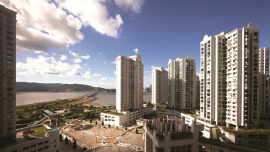A couple of weeks ago, the Macao Trade and Investment Promotion Institute (IPIM) announced that it plans to launch an evaluation service in the third quarter of this year to speed up temporary residency application procedures for foreigners with some education and specialization.
A few days later, the Macau SAR Government and Alibaba Cloud announced that the service was coming to town to assist with implementing the Smart City programme announced during the five-year plan.
There is more. Before IPIM and Alibaba Cloud made their respective announcements, this newspaper reported that Alibaba Group has had several applications for trademark protection approved in the city, for products including media, e-payment systems, nautical instruments, and file sharing software.
The correlation between these three different events might have been overlooked, but they are an indication of a full-fledged set up to enable the cloud infrastructure to be built and operated onwards from within, while being an outside fabrication, channelling ‘foreign’ workforce, technology, and design to the city.
Once the decision has been made to implement cloud computing technology to run things here, there is little room to contest that the city needs a giant such as Alibaba to fulfil the task.
The question is, does Macau need Internet-based computing to be a more efficient city?
The short answer to that is yes. The long answer remains to be seen.
Cloud computing, which basically means storing and sharing resources, software programmes and information over the Internet, is controversial, notably in regards to personal data protection.
It might take a while for the government to issue a clearer stance on that front, but in other matters, the cloud might yield more immediate applicability.
Transport, for one. Here is the cloud as hope for better integration and co-ordination of the public transportation system. Perhaps one day there will no longer be a need for drivers. Which, truth be told, is a bit tempting given the current offer available. But automation replacing human beings is a trend often perceived as a threat.
For other matters, such as improving healthcare access, it is unclear how the cloud will operate. The main problem in Macau today is a lack of infrastructure, trained personnel, and equipment. A cloud won’t solve that, unless it is linked to the task of bringing talent, medical in this case, to the city.
But at this point, that’s just speculation.
The cloud isn’t.























